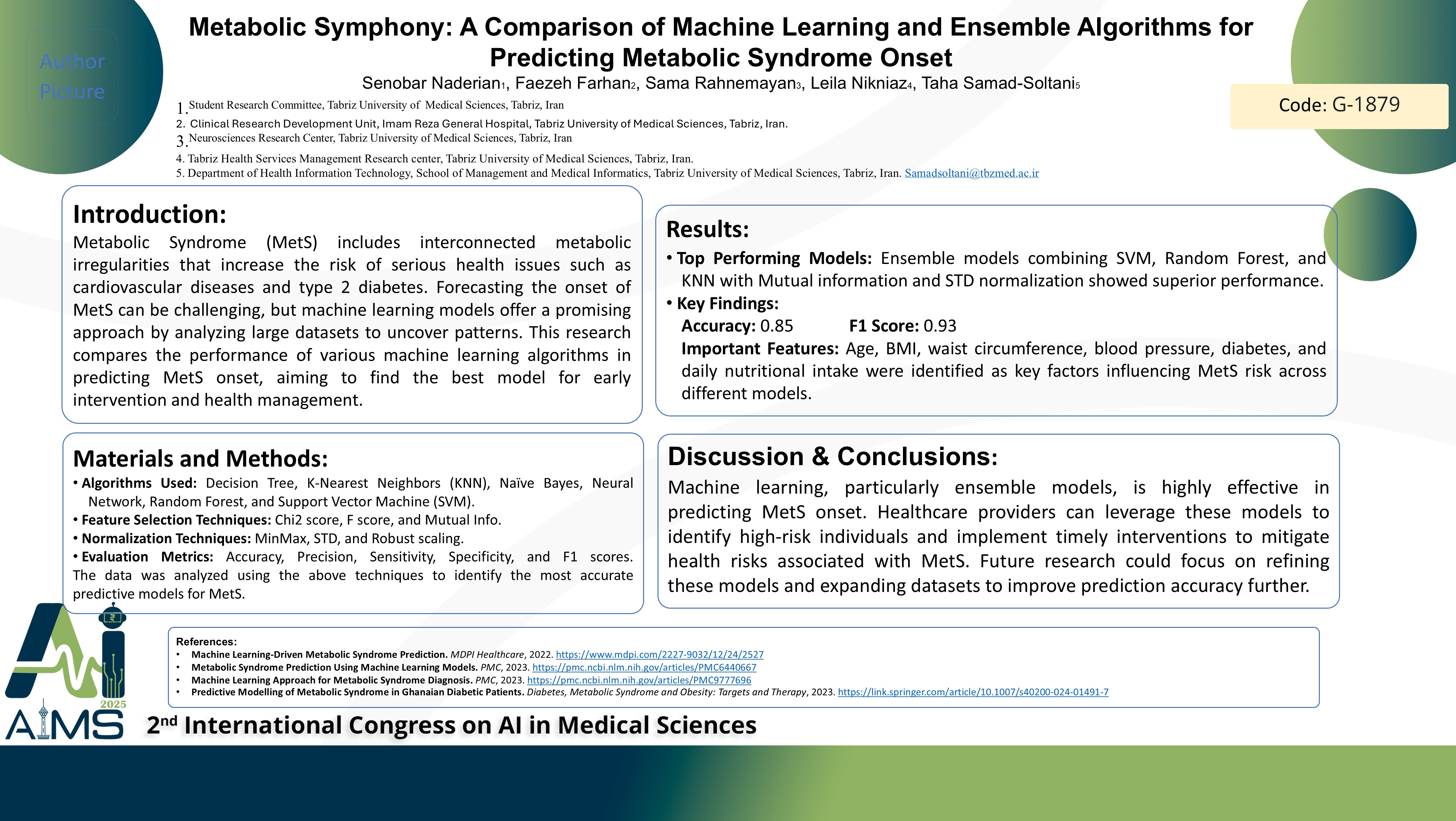Metabolic Symphony: A comparison on Machine Learning and Ensemble Algorithms of Lifestyle Promotion Project Data for Predicting Metabolic Syndrome Onset
Code: G-1879
Authors: Senobar Naderian ℗, Faezeh Farhan, Sama Rahnemayan, Leila Nikniaz, Taha Samad-Soltani *
Schedule: Not Scheduled!
Tag: Biomedical Signal Processing
Download: Download Poster
Abstract:
Abstract
Background: Metabolic Syndrome (MetS) is a complex cluster of interconnected metabolic irregularities that notably foster the risk of cardiovascular disorders and type 2 diabetes mellitus. Aims: Forecasting MetS and its associated factors with Machine learning models that offer a promising approach to analyze datasets and uncover patterns associated with MetS risk. Methods: In this study, we have examined the performance of machine learning models in predicting MetS using distinctive combinations of feature selection and normalization techniques. We employed Decision Tree, K-Nearest Neighbors, Naïve Bayes, Neural Network, Random Forest, and Support Vector Machine, evaluating their accuracy, precision, sensitivity, and specificity. Feature selection methods included Chi2 score, F score, and Mutual info, while normalization techniques comprised MinMax, STD, and Robust. Results: Our analysis revealed that ensemble models, particularly those combining Support Vector Machine, Random Forest, and K-Nearest Neighbors with Mutual information and STD normalization, outperformed individual models in terms of accuracy and F1 scores, reaching an accuracy of 0.85 and an impressive F1 score of 0.93. Furthermore, we identified common features such as age, body mass index, waist circumference, high blood pressure, diabetes, and specific nutritional intakes per day that consistently influenced MetS risk across different models. Conclusion: Findings highlight the efficacy of machine learning models in predicting MetS and the importance of considering both clinical and lifestyle factors in predictive modeling. By using large datasets and advanced algorithms, healthcare practitioners can identify individuals at high risk of MetS and implement interventions to moderate their risk and adjust health outcomes.
Keywords
Metabolic Syndrome, Machine Learning, Ensemble Learning
